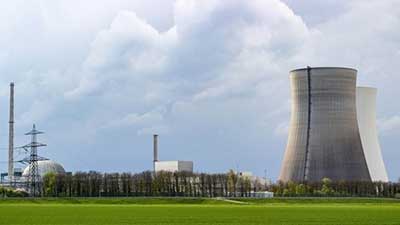Date : 07/08/2023
Relevance: GS Paper 3: Security- Nuclear Doctrine
Keywords: Nuclear Deterrence, Nuclear Taboo, Absolute weapon, Cold War, Russia- Ukraine Conflict, NATO, Nuclear Doctrine
Context-
The conflict in Ukraine and the subsequent nuclear rhetoric between major nuclear powers have raised concerns about the effectiveness of traditional nuclear escalation management strategies. As the geopolitical landscape has evolved since the Cold War, the lessons learned during that period may no longer be adequate in managing nuclear tensions between the United States and Russia.
The Concept of Deterrence and the Nuclear Taboo:
Nuclear deterrence has been a cornerstone of international security, attracting the attention of nuclear-armed and non-nuclear-armed nations alike. The power of nuclear weapons became evident as they evolved, leading to the belief that any nuclear use would have global repercussions. Simultaneously, a nuclear taboo emerged, with a growing consensus that nuclear weapons are so abhorrent that their use can rarely, if ever, be justified. This taboo is rooted in moral, proportionality, and responsibility considerations rather than legal foundations
Unique Nature of Nuclear Weapons:
The "absolute weapon" concept, as coined by Bernard Brodie, highlights the distinctiveness of nuclear weapons. Their uniqueness does not solely lie in their destructive power, as conventional munitions have reached comparable levels, but rather in the indiscriminate nature of nuclear devastation. Nuclear weapons do not differentiate between combatants and non-combatants, contaminate the environment for generations, and leave lasting radiation effects on affected populations. This unparalleled destructiveness underscores the taboo against their use
Deterrence Failure:
In June 2021, President Joe Biden and President Vladimir Putin prioritized nuclear arms control in their meeting, but no tangible progress was made. Russia's troop presence in Belarus near the Ukrainian border heightened tensions, leading to a series of diplomatic engagements, which ultimately failed to deter Russian aggression. In February 2022, Russia initiated a "special military operation" in Ukraine, despite U.S. attempts at deterrence.
NATO's Response
As the situation escalated, NATO leaders sought to prevent a broader NATO-Russia conflict. President Biden made it clear that the U.S. was determined to avoid a Third World War and wanted to avert direct conflict with Russia. Sanctions and military assistance were gradually provided to Ukraine, leading to an increase in NATO's involvement. Russia's nuclear threats did not deter NATO actions but did impact the timing and pace of their response.
Cold War Lessons:
During the Cold War, deterrence was based on the rationality of adversaries, assuming both sides could understand the costs and benefits of their actions. The possession of vast nuclear arsenals deterred surprise first strikes, and nuclear weapons were considered politically useful rather than usable. Escalation and the element of risk were essential to maintain credible deterrence. However, the current geopolitical landscape differs significantly from the Cold War era.
Russia's Nuclear Doctrine:
Russia's nuclear doctrine allows for the use of nuclear weapons in response to nuclear or other weapons of mass destruction attacks or conventional aggression threatening the state's existence. The "escalate-to-deescalate" approach, which involves using tactical nuclear weapons to end a battlefield stalemate, has been rejected by the U.S. due to concerns over uncontrolled escalation.
New Guardrails Needed:
Given the complexity of the current political landscape, new guardrails must be established to preserve the nuclear taboo and prevent inadvertent escalation. Both the U.S. and Russia are continuously testing each other's red lines, leading to uncertainty and unpredictability. To maintain global security, clearer guidelines and mechanisms for communication and understanding each other's intentions are essential.
Responses and Hope for the Future:
In response to the heightened tensions, NATO and other nuclear-armed states emphasized that any nuclear use would trigger a strong and appropriate response, indicating that conventional retaliation would be the preferred option. Their measured responses underscored the commitment to avoid nuclear escalation. Additionally, China's President Xi Jinping echoed calls to oppose the use or threats of nuclear weapons, contributing to the global effort to preserve the nuclear taboo.
Conclusion:
The legacy of Hiroshima (The horrific events of August 6, 1945, when the Enola Gay dropped an atomic bomb on Hiroshima) serves as a stark reminder of the unimaginable consequences of nuclear weapons use. As the world navigates the complexities of nuclear deterrence and the nuclear taboo, it must reaffirm its commitment to a world free from the horrors witnessed in Hiroshima and Nagasaki. By preserving the taboo against using nuclear weapons, upholding global security, and fostering international cooperation, we can strive toward a safer and more peaceful world.
Probable Questions for UPSC main exam-
- Assess the role and effectiveness of the "nuclear taboo" in nuclear deterrence and its impact on global security in the modern geopolitical context. (10 Marks, 150 Words)
- Analyze the limitations of traditional nuclear escalation management strategies, considering the conflict in Ukraine. Propose new guardrails and mechanisms to prevent inadvertent nuclear escalation between major nuclear powers like the United States and Russia. (15 Marks, 250 Words)
Source - The Hindu








